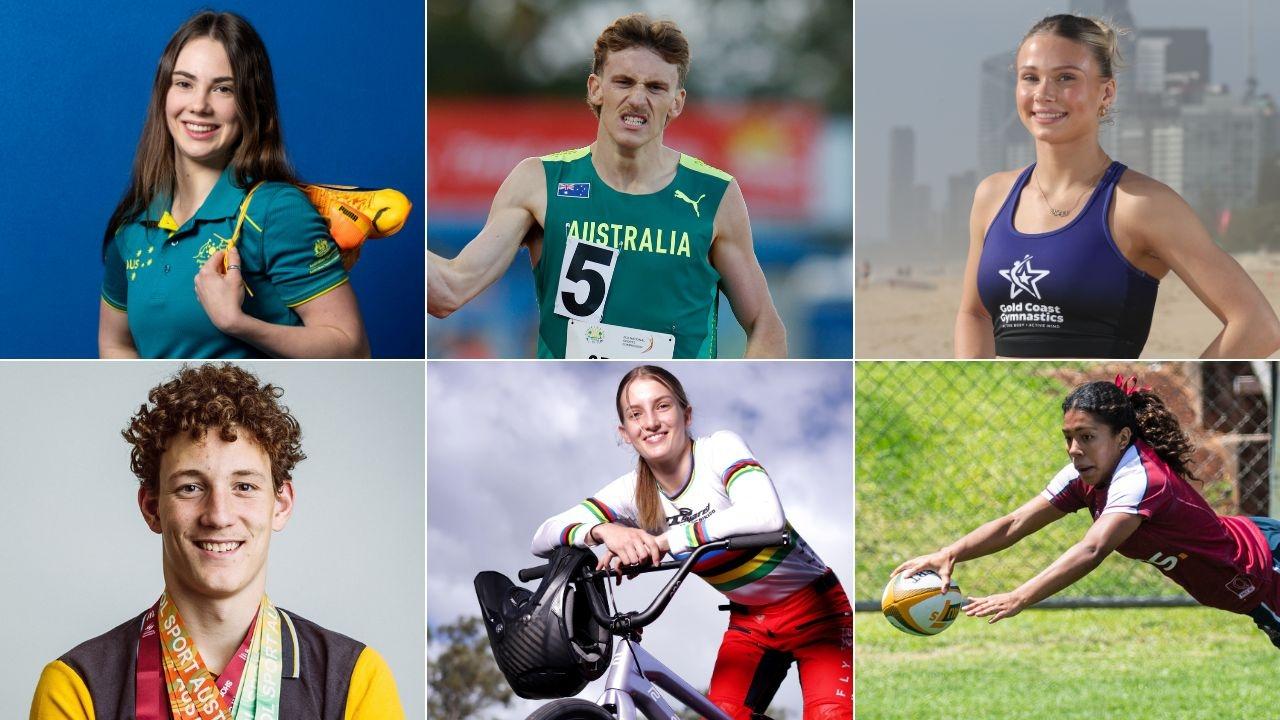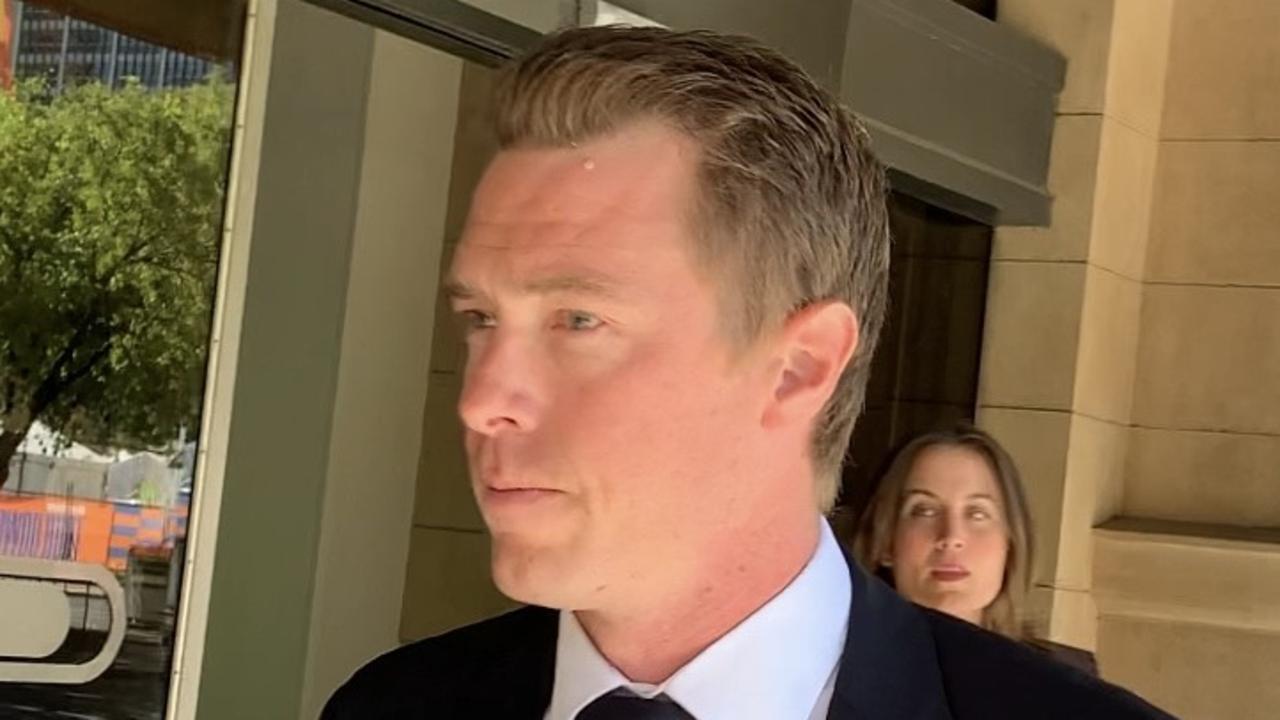Australian cycling’s ambitious plan to return to the top of the world at Tokyo Olympics
AUSTRALIA failed to win a gold medal at the Rio Olympics and Cycling Australia’s new high performance director is chasing credibility for the sport and a return to the top of world.
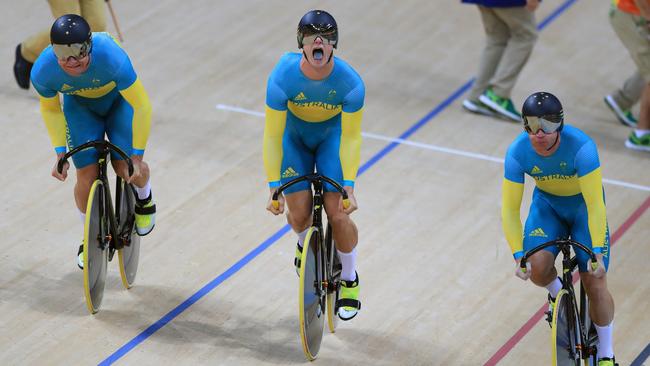
Cycling
Don't miss out on the headlines from Cycling. Followed categories will be added to My News.
SIMON Jones holds up his iPhone and opens the stopwatch.
“This is how close we were to a medal in the men’s team sprint at the Rio Olympics,” Jones says.
“Start ... stop. Actually, that’s double the difference.”
Jones is sitting with the Herald Sun in Adelaide talking about the 0.155 of a second that cost Patrick Constable, Matthew Glaetzer and Nathan Hart a bronze on the track in the 2016 Games.
Cycling Australia’s new high performance director is chasing these seconds and stacks more like them.
He’s chasing credibility for Australian cycling, and the ambitious target is a return to the top of world.
Jones wants 4-6 Olympic gold medals at Tokyo 2020 when there was none at Rio 2016. Australia was the No.1 cycling nation in the world at the 2004 Athens Olympics.
It fell to 12th at Beijing 2008, was fourth at London 2012, and 13th at Rio with only one silver and one bronze.
By his own admission, it’s an enormous task on a shrinking budget that demands more be done with less. But Jones also has enormous ambition.
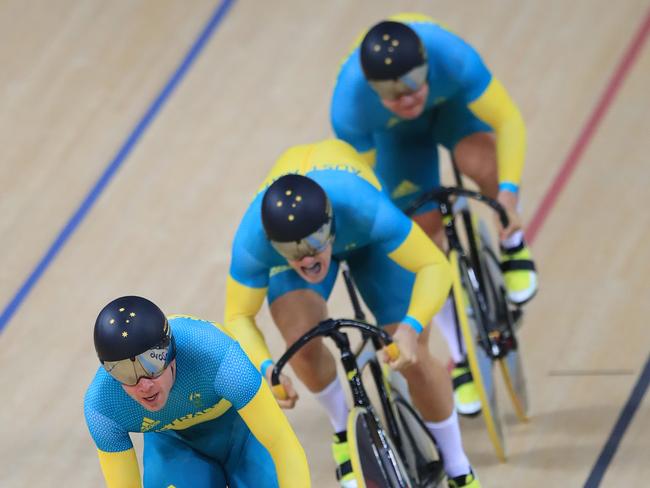
A British-born cyclist who didn’t quite “make it”, Jones, 47, found his passion in coaching, where he worked at British Cycling until 2007 and the Western Australian Institute of Sport until 2013.
“We always looked across and admired the Aussies, and I want to bring that winning feeling back,” he said.
At the all-conquering and methodical Team Sky, he was an integral part of the well-resourced machine from 2013 to 2016 that yielded three Tour de France triumphs for Chris Froome.
Jones hit Cycling Australia like a cyclone in April and has turned the place upside down in pursuit of a winning formula on a budget
A “refocused athlete pathway” will push all riders to the track where a new Podium Potential Academy has been formed to target the best medal outcomes at Olympic and Commonwealth Games level. Road cycling scholarships will no longer be offered, given the athlete development time required and lottery-winning nature of the discipline.
“We’re aiming wide and shallow when we need to be deep and narrow,” Jones said.
“We get given government money, taxpayers’ money to do a job. We need less athletes. We’ve had half the funding of the UK, but twice the athletes to support.
“I don’t want a wide pathway, I want a quality pathway, because we need to keep the standards high, and when you do that you’ve got a better chance of converting.”
Jones knows he can’t please everyone — and isn’t interested in that.
“I don’t mind rattling the cage,” he said.
At September’s road world championships in Norway, only five women were selected for the seven places they had qualified for.
The men, meanwhile, were given a full complement in support of title contender Michael Matthews.
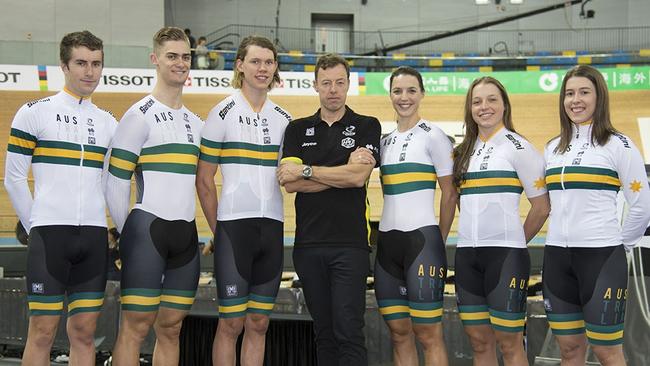
Chloe Hosking and Rachel Neylan successfully appealed against the women’s selection, which dual national champion Kimberley Wells labelled “highly sexist”.
But not only does Jones have no regrets over a decision he stressed had nothing to do with gender, he said there would be more like it.
“I’m not going to make apologies for performance-based decisions. If we send a whole women’s team or a whole men’s team, we have to do it for the right reasons,” he said.
“I was pretty clear in my interview what I stood for and what I’d learnt and what I felt needed to change. That will be uncomfortable at times, I can guarantee it.
“We’re not going to send equal teams just to be politically correct. It’s not the right thing to do.”
Jones also isn’t scared to bypass events in which he doesn’t think Australia can win a medal.
Another casualty is March’s track world championships, which he will largely overlook to “stop and reflect” between two big priorities — April’s Gold Coast Commonwealth Games and the 2020 Tokyo Olympics.
“We need to do more with less. It’s not a five-minute job and I’m not Harry Potter with a magic wand,” Jones said.
“We’ve got limited resources and we need to be clever with how we compete.”
Which brings us to John Pitman, a former principal aerodynamicist at Jaguar Land Rover brought in to try to unlock advantages as Cycling Australia’s head of aerodynamics.
“It was all about sports science, but now it’s engineering. There’s been a shift,” Jones said.
“But the most important thing is talented athletes. You still need to train and commit and do all the hard work.”
That hard work is aimed at Tokyo and the next chance for Australia to redeem itself on two wheels at Olympic level.
Jones knows he has set a high bar, but he wouldn’t have it any other way.
There are encouraging signs, too, with Cameron Meyer and Callum Scotson upstaging British stars Mark Cavendish and Peter Kennaugh to win the London Six-Day event in October.
“We have to have the courage to say we want to win and back ourselves to work out how we bridge the gap,” Jones said.
“You’ve got to dare to win.”
Originally published as Australian cycling’s ambitious plan to return to the top of the world at Tokyo Olympics

